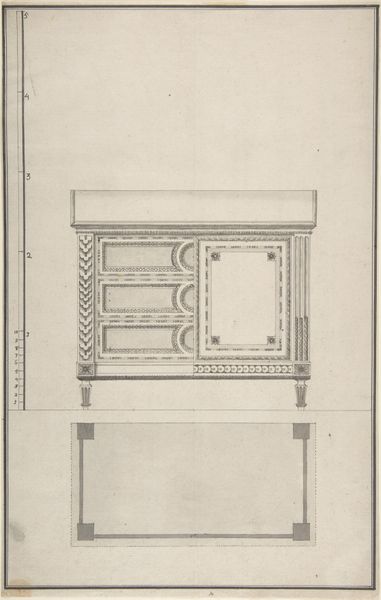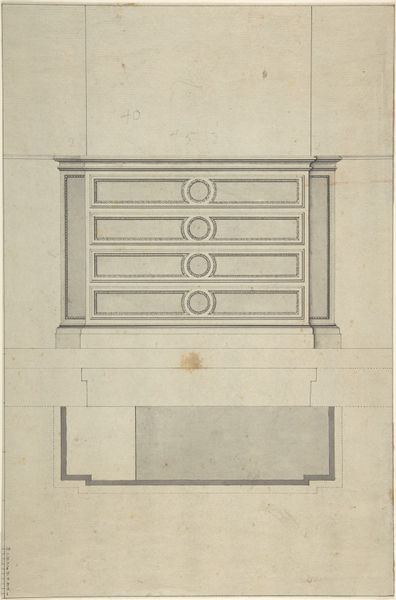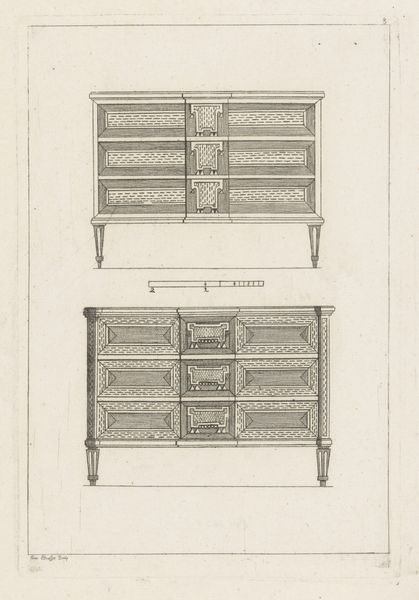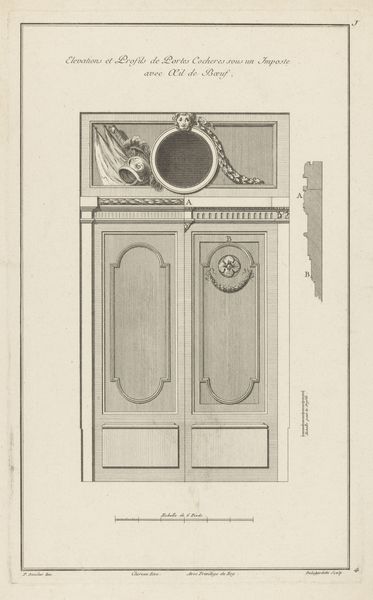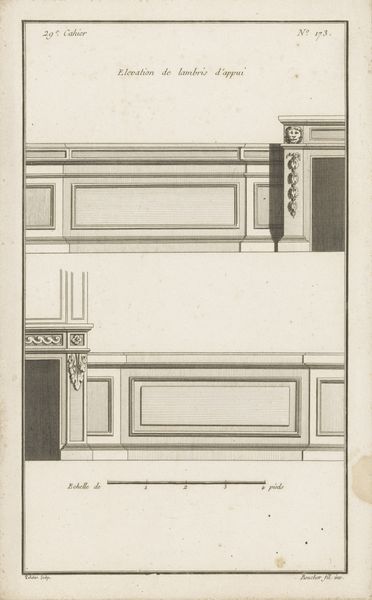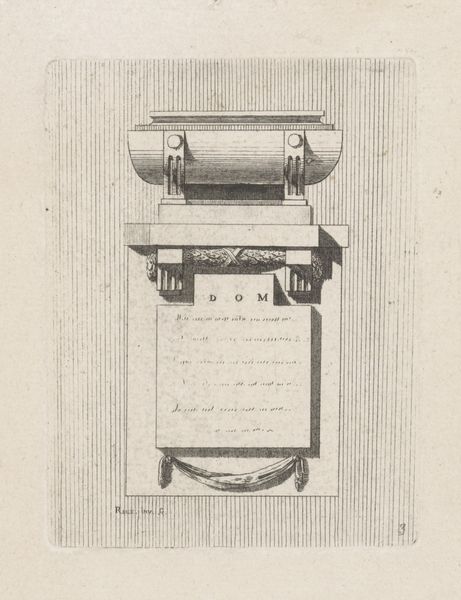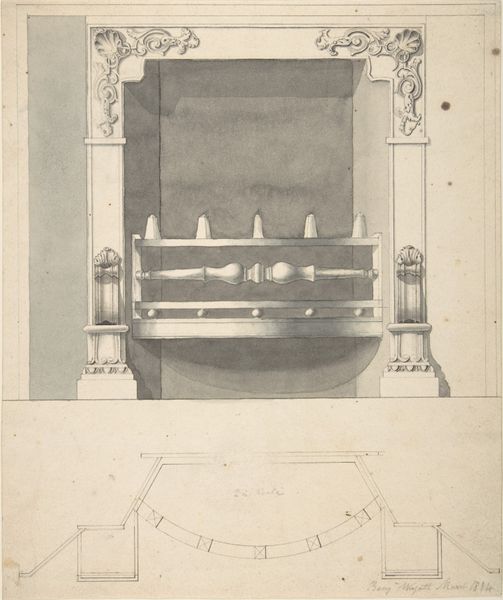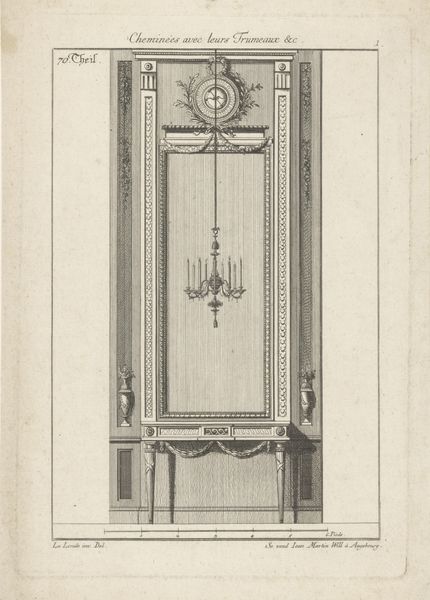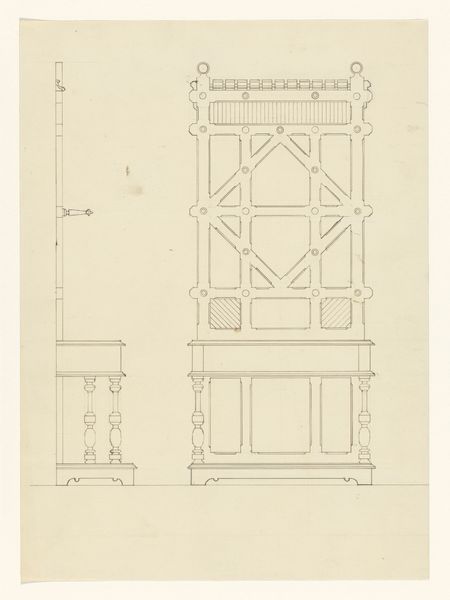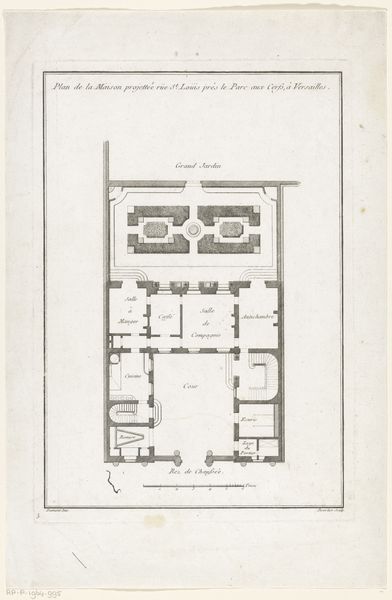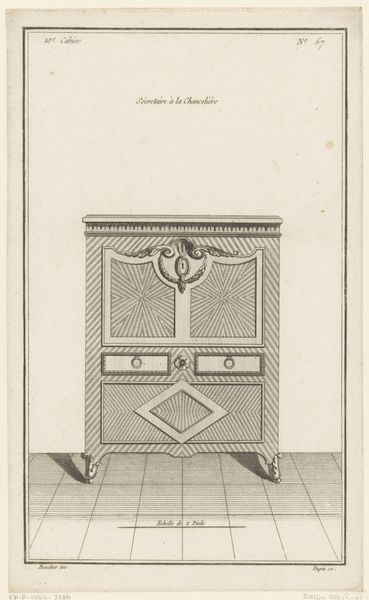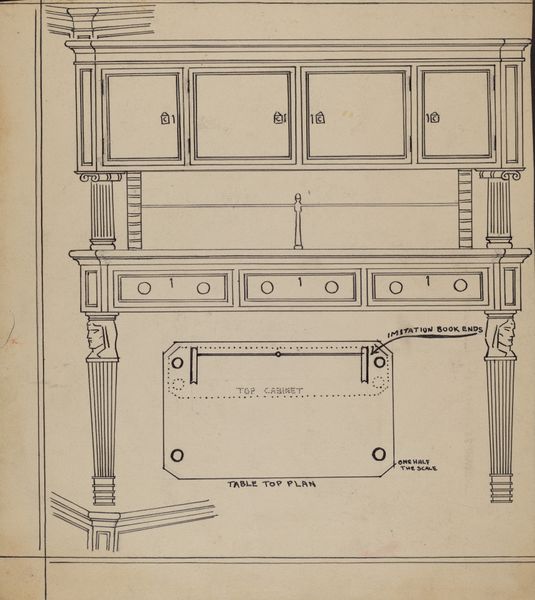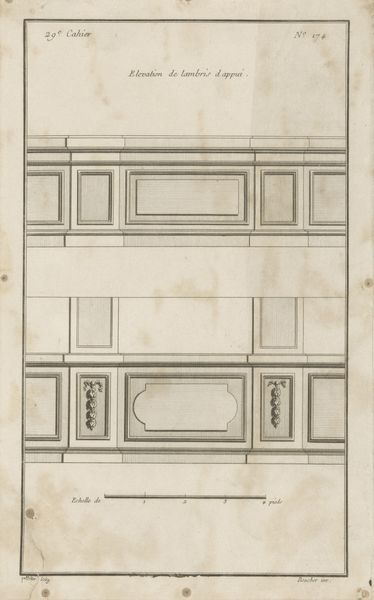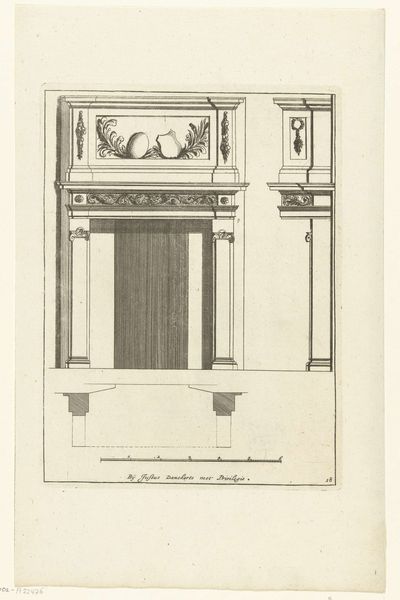
drawing, graphic-art, print, engraving
#
drawing
#
graphic-art
# print
#
old engraving style
#
form
#
geometric
#
classicism
#
line
#
history-painting
#
academic-art
#
engraving
Dimensions: height 259 mm, width 205 mm
Copyright: Rijks Museum: Open Domain
Curator: Ah, here we have “Kast op ronde poten,” or “Cabinet on round feet,” dating back to 1642. The piece, currently housed at the Rijksmuseum, is rendered as an engraving. What’s your immediate impression? Editor: Cold and clinical, almost… diagrammatic. It feels like a blueprint, rather than a celebration of craftsmanship. Still, I can appreciate the precision of the lines; it has the aesthetic detachment of scientific observation. Curator: Precisely. There's a calculated elegance here, an exploration of form and functionality within a classical framework. It's as if the artist, although remaining anonymous, is distilling the essence of the cabinet, reducing it to its core geometric components. Do you notice the… almost hesitant curves where it meets those spherical feet? Editor: Hesitant is a great word! And looking closely, you see this wasn't meant to be 'art' in the way we usually think. This print probably served as a guide for cabinet makers. Think about the labor that goes into constructing something so detailed, especially considering the materials listed like ebony and “slangenhout”, snakewood. Were those available locally or did they import from afar? How does that change the socio-economics of furniture? Curator: Indeed, and those material choices underscore a story of status and trade, I suspect, while its aesthetic leans towards academic art with hints of classicism – creating a rather unique marriage. The cool lines really speak to restraint but the very concept speaks to elaborate, baroque excess. Editor: I agree. Plus, think about the dissemination of knowledge through prints like these. Suddenly cabinet design isn’t some guarded secret among guild members, but something spread across communities through these engraved images! Its like sharing trade secrets with an elegant classical twist. Curator: And on the subject of circulation… it’s lovely to ponder how a static, two-dimensional rendering, becomes this touchable reality, adorning real spaces – breathing life into an artistic vision across the centuries, each craftsman imbuing the cabinet with their own understanding. Editor: Exactly, turning an exercise in pure geometry into something human through physical work, wood and tools. Curator: Ultimately, this seemingly straightforward engraving invites layers of interpretation from aesthetic ideals to socio-economic complexities. A true historical gem in humble guise. Editor: Yes, the simplicity hides the social relationships behind even everyday object. It has given me a new appreciation for a piece that at first I considered quite stark.
Comments
No comments
Be the first to comment and join the conversation on the ultimate creative platform.
